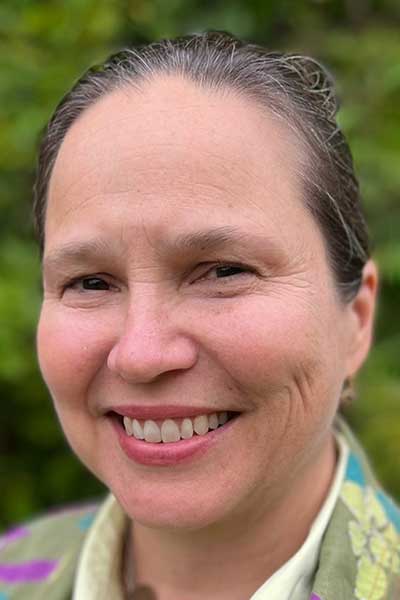
Vaccines against respiratory syncytial virus (RSV) based on protein subunits of the virus are effective in persons aged 60 years or older, results from a large case-control study showed. Specifically, a vaccine effectiveness of approximately 75% was similar for patients aged 60 to 74 years and those aged 75 years or older against all outcomes.1
“Two protein subunit RSV vaccines were approved by the US Food and Drug Administration (FDA)] in 2023 and recommended for use in adults 60 years and older by the Advisory Committee on Immunization Practices,” said one of the study authors, Pauline Terebuh, MD, MPH, of the Center for Artificial Intelligence in Drug Discovery at Case Western Reserve University School of Medicine, Cleveland, Ohio. “The 2023 to 2024 respiratory virus season was the first opportunity to evaluate vaccine effectiveness and safety after introduction of these vaccines.”
Terebuh and colleagues used a retrospective, test-negative, case-control study design to estimate RSV protein subunit vaccine effectiveness against RSV illness among adults aged 60 years or older. The analysis included individuals with acute respiratory infection-associated medical encounters, emergency department visits, or hospitalizations during the 2023 to 2024 RSV season, drawn from deidentified electronic health record data of more than 270 million US patients. The researchers classified patients as being vaccinated if they had any record of receiving a single dose of an RSV protein subunit vaccine from any manufacturer at least 14 days before testing for RSV, while those with no such record were classified as unvaccinated.

The median ages of participants in the case and control groups were 74 years and 73 years, respectively. More than 51% were between the ages of 60 and 74, and more than 80% were White. The analysis included 53,963 patients who tested positive for RSV and 733,859 patients in the control group. Of these, 1,318 patients in the case group (2.4%) and 66,928 patients in the control group (9.1%) were vaccinated. Overall, vaccine effectiveness against acute respiratory infection was 75.1% (95% CI, 73.6%-76.4%) and was similar across age groups of 60 to 74 years and 75 years or older, as well against both urgent care visits and hospitalizations.1
Among patients who were immunocompromised, overall vaccine effectiveness against acute respiratory infection was 70.4% (95% CI, 67.8%-72.7%) and increased with age, from 67.0% (95% CI, 62.6%-70.9%) in those aged 60 to 74 years to 73.1% (95% CI, 69.9%-76.0%) in those aged 75 years or older.1
“The vaccine effectiveness estimates were perfectly aligned with results from the clinical trials before FDA approval and with the smaller postlicensure studies that were conducted,” Dr. Terebuh said.
The researchers observed no elevated risk of immune thrombocytopenic purpura after vaccination, but they found an estimated excess of 11.2 cases of Guillain-Barré syndrome (GBS) per 1,000,000 vaccines administered. This risk was statistically significantly higher among patients who received the RSV p refusion F (RSVPreF) vaccine (an estimated excess of 18.2 cases per 1,000,000 vaccines administered) but not among those who received the RSVPreF+AS01 vaccine (an estimated excess of 5.2 cases per 1,000,000 vaccines administered).
Dr. Terebuh noted that stimulation of the immune system could possibly trigger GBS. “Its occurrence after [vaccination] is very rare and, in most cases, much less frequent than its occurrence after the infection against which the vaccine is protecting,” she explained. “The most common infection associated with GBS is Campylobacter. Some viral infections that are associated include influenza, cytomegalovirus, Epstein-Barr virus, and Zika.”
Shaun J. Grannis, MD, Professor of Family Medicine at Indiana University School of Medicine and a member of the US Centers for Disease Control and Prevention’s VISION Vaccine Effectiveness Network, who was not involved with the study, noted that the long-term protection offered by RSV vaccines across multiple seasons remains unknown.
“More work is needed to understand potential interactions [of the RSV vaccines] with influenza and COVID vaccines, especially in [older adults with complexities and comorbidities],” he said. “The decreased vaccine effectiveness for stem cell recipients raises questions regarding whether modified vaccine regimens or timing will improve efficacy.”
Dr. Grannis said the study demonstrates the value of using large, real-time electronic health records to address important public health questions quickly.
“The ability to detect safety signals, such as GBS, which occurs at [around] 11 excess cases per million doses overall, highlights the statistical power of big data in public health,” he said.
References
1. Fry SE, Terebuh P, Kaelber DC, Xu R, Davis PB. Effectiveness and safety of respiratory syncytial virus vaccine for US adults aged 60 years or older. JAMA Netw Open. 2025;8(5):e258322. doi:10.1001/jamanetworkopen.2025.8322
